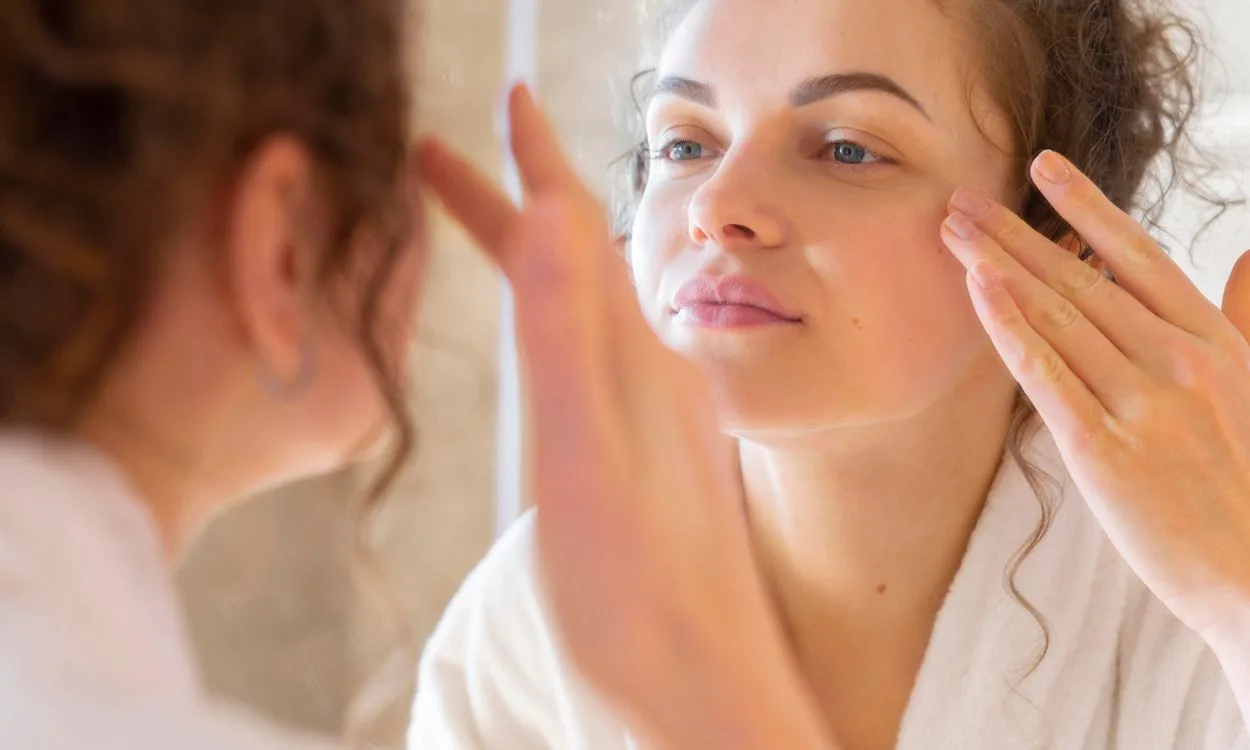What is the impact of PCOD on skin health?
Polycystic ovary syndrome (PCOS) is a hormonal disorder that affects millions of women worldwide, including a significant number in India. This condition can have a profound impact on various aspects of a woman’s health, including her skin. In this article, we will explore the connection between PCOS and skin health, as well as the potential solutions to manage these skin-related issues.
Understanding PCOD and its hormonal effects
PCOS is characterized by the presence of cysts on the ovaries, along with hormonal imbalances. One of the key hormones affected in PCOS is insulin, which plays a crucial role in regulating blood sugar levels. Insulin resistance is common in women with PCOS, meaning that their cells do not respond effectively to insulin.
This hormonal imbalance can trigger a cascade of effects on the body, including an overproduction of androgens, or male hormones. These elevated androgen levels can lead to a range of symptoms, including irregular periods, weight gain, and fertility issues. Additionally, these hormonal changes can have a direct impact on the skin.
Skin manifestations of PCOD
- Acne: One of the most common skin issues associated with PCOS is acne. Elevated androgen levels can stimulate the sebaceous glands in the skin to produce excess oil, leading to clogged pores and the development of acne. Women with PCOS often experience persistent and stubborn acne that is difficult to control with traditional acne treatments.
- Hirsutism: Excess hair growth, known as hirsutism, is another common skin manifestation of PCOS. Increased androgen levels can cause hair to grow in areas where it is typically minimal, such as the face, chest, and back. This can be distressing for many women and may require specialized hair removal techniques.
- Darkening of the skin: Some women with PCOS may notice areas of their skin becoming darker or more pigmented. This is known as acanthosis nigricans and is typically seen in areas where there are skin folds, such as the neck, groin, and underarms. This darkening is thought to be a result of insulin resistance.
- Skin tags: Skin tags are small, flesh-colored growths that commonly occur in areas where the skin rubs against itself, such as the neck, armpits, or groin. These benign growths are more prevalent in women with PCOS and may be related to insulin resistance.
- Thinning hair: While not directly related to the skin, PCOS can also contribute to hair loss or thinning. Changes in androgen levels can affect the hair follicles and lead to hair shedding or decreased hair volume.
Managing skin health in PCOS
While PCOS can have a significant impact on skin health, there are steps that women can take to manage these issues and improve the overall appearance and condition of their skin.
- Maintain a healthy diet: A balanced diet that focuses on whole, unprocessed foods can help manage insulin resistance and minimize hormonal fluctuations. Choose foods that have a low glycemic index to help stabilize blood sugar levels and reduce the risk of acne breakouts.
- Regular exercise: Engaging in regular physical activity can improve insulin sensitivity and help maintain a healthy weight. Exercise also promotes overall well-being and can contribute to healthier-looking skin.
- Skincare routine: Establishing a skincare routine that includes gentle cleansing, exfoliation, and moisturization can help manage acne and keep the skin hydrated. Look for non-comedogenic products that won’t clog pores and exacerbate acne.
- Hair removal: If hirsutism is a concern, various hair removal methods can be employed, such as shaving, waxing, or laser hair removal. Consult with a dermatologist or skincare professional to determine the best approach for your specific needs.
- Treatment options: In more severe cases, dermatologists may recommend topical or oral medications to manage acne or other skin issues associated with PCOS. These medications may include retinoids, antibiotics, or hormonal therapies, such as birth control pills or spironolactone.
Introducing Fitpaa: Your partner in health and wellness
At Fitpaa, we understand the challenges faced by individuals with PCOS and their desire to achieve optimal health and well-being. Our end-to-end AI-driven technology is designed to help you achieve your health and fitness goals, including managing the impact of PCOS on your skin health.
Through our personalized Fitpaa Capsule, our team of experts, including fitness coaches, nutritionists, and doctors, will tailor a program specifically for you. This comprehensive approach encompasses medical therapy, medical exercise therapy, medical nutrition therapy, and cognitive behavior therapy to optimize your metabolism and help you achieve your health and fitness goals with a 100 percent guarantee.
With the Fitpaa mobile app, you’ll have access to a virtual workout trainer, diet tracker, performance tracking, progress tracking, and more. Our real-time guidance technology incorporates habit-building techniques and timely nudging to keep you motivated and on track.
Don’t let PCOS hold you back from achieving your dream skin and overall well-being. Download the Fitpaa app today and take the first step towards a healthier, happier you.









